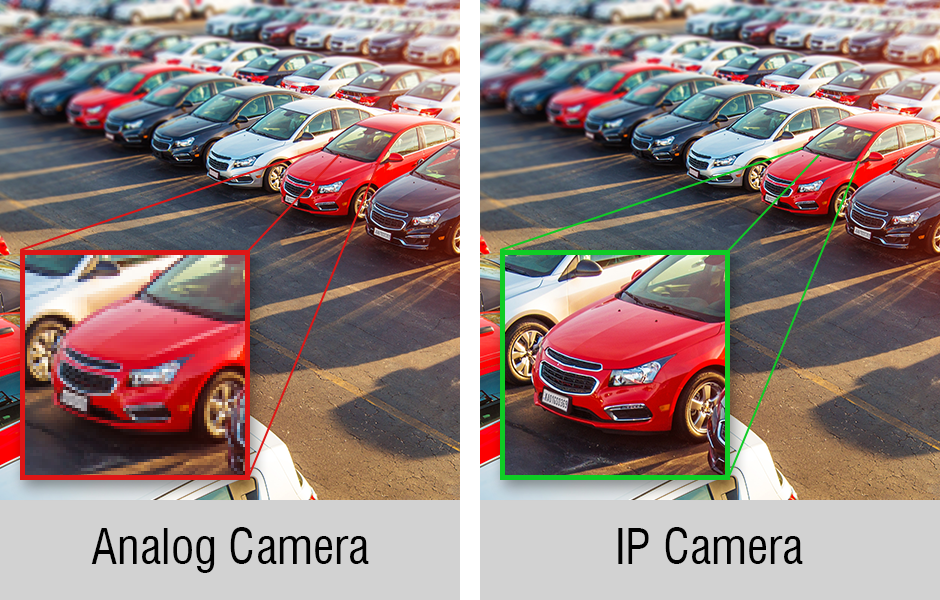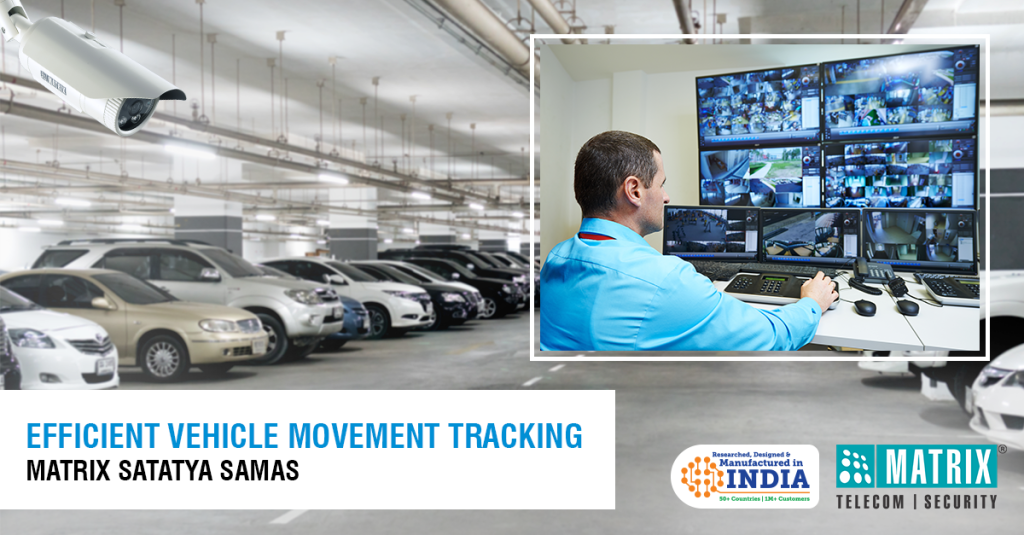
Have you ever seen a crime movie or a web series where a policeman and his team are gathered around a TV or a computer screen? And suddenly, one of them spots something unusual and says, “Zoom in that guy/girl and enhance the image a little bit so that we can get a clearer picture of his/her face”.
Now, that blurry and a grainy image becomes precise and a crystal clear vision of that culprit and bam! Case closed!
I hope you know, that was just fiction. For real, that grainy footage from that analog camera gets grainier and blurrier when you zoom in for a closer look.
Things are quite different from IP Cameras! No longer does security camera footage have to be of poor quality and narrowly focused as we’re used to seeing on analog CCTV.
Skeptical on whether to hop on the IP train or not? Well, that’s why we’re here, to give you the rundown on IP Cameras Vs Analog Cameras.
Are IP Cameras Really Worth It?
Nowadays, when the price gap between IP cameras and Analog cameras is getting smaller and the technology is getting better, it is becoming hard for small and medium enterprises to make a wise choice between the two.
That said, IP Cameras are already dominating the market. Safety is important and IP surveillance technology has become a quintessential part of an organization. Smart enterprises, today, do not require obsolete, analog surveillance systems but new, dynamic automated approaches that provide strong safety and high business value from the start of their business.
IP Cameras aim to provide world-class surveillance solutions that can address the security concerns of enterprises of all sizes. Catering to a wide range of customers, IP Cameras fit the unique needs of different industries. Whether you manage 100+ locations or one, an effective Centralized IP Video Surveillance system can capture and document security events from endless locations.
What Are The Advantages of IP Cameras Vs Analog Cameras?
IP stands for Internet Protocol, and it refers to a digital video camera that can send and receive data via a computer network, which is similar to sending a feed to a Network Video Recorder (NVR).
While,
An Analog Camera records images and then sends the signal over a coaxial cable to a DVR (Digital Video Recorder). The DVR converts the video from analog to digital signals, compresses the file, and stores it on a hard drive.
Here are some of the advantages of IP Cameras Over Analog Cameras:
Picture Quality
When it comes to picture quality, analog cameras are a no match to IP ones. Traditional cameras or Analog cameras are unable to produce a good resolution of the image it captures and that makes the purpose of installing a camera in any premises redundant. IP cameras capture a far better quality than you could ever imagine achieving with a traditional CCTV.
Additionally, IP cameras possess a much wider field of view, meaning a single IP camera is potentially able to do the job of three to four Analog cameras.
Video Analytics

Well, do you wish to watch an event of just minutes or maybe, seconds but you end up watching hours and hours of video that the camera has captured. Rings a bell?
Gone are the days where you need to sit in front of a camera trying to inspect a single event. With intelligent video analytics, you can set your network to flag such events that occur within the camera’s field of vision. This event could be anything from motion detection to video tampering alarm, exception (network disconnected, IP address conflict, illegal login, HDD full, HDD error), line crossing detection or intrusion detection. So, instead of poring over hours of footage, IP cameras can tell you exactly when these events occurred.
Flexibility and Scalability
IP cameras generally consist of switches that allow other cameras in close proximity to each other to be connected to a single switch, which then can be connected with NVR with a single wire. This reduces the clutter of wire and allows you to connect more cameras because you’re no longer limited by the number of ports on your NVR. Whereas, in Analog cameras, you have to connect each camera directly into the DVR which creates a lot of clutter and is labor-intensive. IP cameras allow a PoE switch that enables the cable to run the signal and provide power to your camera, which negates the need for a separate power supply.
Matrix offers 5MP Dome IP Cameras to provide glitch-free performance even under extreme operating temperatures. These cameras are designed to provide high definition, crystal clear images and at the same time withstand harsh environmental conditions. Due to the sturdiness, our IP Cameras can be used for both indoor (Dome Cameras preferred) as well as outdoor (Bullet Cameras preferred) applications. Furthermore, the dome variant of the Camera is vandal-proof, which comes with an unbreakable enclosure (IK10), making it impossible for miscreants to damage it.
So if you’re looking into setting up a new surveillance and security system, Matrix IP cameras should be a wise choice for your business.
Get in touch with our security experts to know more about our innovative IP Camera surveillance systems and other IP Video Surveillance solutions.

